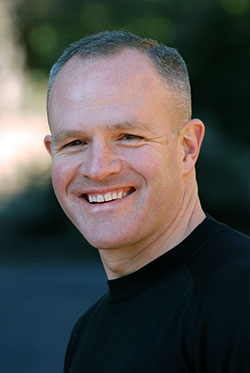LU hosts synthetic-biology authority Keasling Oct. 14
 From Nebraska farm boy to groundbreaking researcher at the University of California, Berkeley, Jay Keasling has become one of the world’s foremost authorities on synthetic biology and metabolic engineering. At Berkeley, he developed engineered bacteria to create life-saving malaria drugs and carbon-neutral biofuels that provide an alternative to petroleum. Keasling will share his story and vision of the role of engineers and scientists for the betterment of mankind in a free public lecture at Lamar University Oct. 14.
From Nebraska farm boy to groundbreaking researcher at the University of California, Berkeley, Jay Keasling has become one of the world’s foremost authorities on synthetic biology and metabolic engineering. At Berkeley, he developed engineered bacteria to create life-saving malaria drugs and carbon-neutral biofuels that provide an alternative to petroleum. Keasling will share his story and vision of the role of engineers and scientists for the betterment of mankind in a free public lecture at Lamar University Oct. 14.
His visit is hosted the LU’s College of Engineering as part of the university’s Academic Lecture Series. The free lecture will be held at 7 p.m. in the University Theatre. For more information on the lecture, call (409) 880-8741.
Keasling, who holds a Ph.D. from the University of Michigan, is a member of the National Academy of Engineering. He is a professor of chemical engineering and bioengineering at the UC- Berkeley. He is also associate laboratory director for biosciences at the Lawrence Berkeley National Laboratory and chief executive officer for the Joint BioEnergy Institute.
Keasling is known for developing an engineered strain of bacteria for producing the anti-malaria drug, Artemisinin, which he gave away for free to reduce the cost of the drug for people in the developing world. He is also known for developing an engineered strain of bacteria that produces biofuels and provides an alternative to traditional drilling.
A global health issue that affects 300-500 million people, malaria takes more than one million lives each year. Drug resistance has made the chloroquine-based drugs less effective and the plant-derived replacement, artemisinin, while proven effective is very expensive to produce. Keasling’s Berkeley laboratory engineered bacteria to convert simple sugars into artemisinic acid that can then be formed into artemisinin using simple, inexpensive chemistry.
To ensure the treatment would be affordable to children and adults for whom it was intended. To do so, he was able to create a unique private/public partnership to license the patents royalty-free in developing countries so the medicine would be produced at large scales, and provided at cost, ensuring delivery where it is needed most. Keasling’s method produces much more affordable treatments for Malaria that is benefitting millions of people worldwide.
Having grown up working on his father's farm in Nebraska, Keasling's agricultural roots remain at the forefront of his work today where it plays out in his research on biofuels. Using similar techniques, Keasling’s research engineers microorganisms to produce hydrocarbons with similar properties to fuels now derived from petroleum. Because these fuels are synthesized from agricultural feedstocks such as cellulosic biomass, they require less energy and are a less controversial method than using corn. Combustion of these biofuels does not add carbon to the atmosphere and is entirely renewable.
In 2012, Keasling received the Heinz Award in technology and in 2014 he was honored with the Economist Innovation Award in BioScience.
The Lamar University Academic Lecture Series, sponsored by the students, brings a significant element to the university experience by allowing Lamar’s academic community to offer two lectures each year featuring prominent speakers from disciplines represented by each of the university’s colleges. Previous speakers include astronaut Sally Ride, entrepreneur Jerry Greenfield, journalist Tony Snow, professional basketball player Bob Love, author Sarah Vowell, freedom writer Manuel Scott, author Erik Qualman, choreographer Judith Jamison, and actor and environmentalist Ed Begley Jr.


